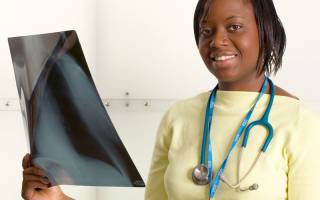Frequently asked questions about occupational health and wellbeing provision at UCL.
Here are answers to our most commonly asked questions. Select a category below or scroll down to browse. If you can't find your answer here, please get in touch.

Our location, services and how to make appointments.

Finding a doctor, dentist, physio, an eye-test or first-aid.

Referrals, vaccinations and reporting an accident.
- What is occupational health?
The Workplace Health team provide a comprehensive occupational health service to UCL. We aim to promote physical and psychological wellbeing and prevent illness and injury arising from work activity. We take a pro-active approach to the management of health in the work environment, advising on the effects of health on work and work on health.
We also provide support for certain groups of students and their study activites. These include PhD students and those studying professionally regulated courses, including medicine, speech and language therapy, pharmacy, teaching and clinical psychology. We also provide screening services to some other student groups who work in UCL laboratories and NHS placement.
Please get in touch if you’re not sure if we support your area.
- What wellbeing support is available?
For information on wellbeing, please visit our wellbeing site.
- Where is Workplace Health located?
The Workplace Health team is currently situated on the 4th Floor of 3 Gower Place. We are moving to a new site in mid 2019.
Please see how to contact Workplace Health.
- What does Workplace Health do?
Please see:
What we do - for a full list of occupational health services.
Wellbeing@UCL - for wellbeing support and details of our strategy Wellbeing@UCL- How long will my appointment last?
Most appointments last between 15 and 30 minutes, however, if you are referred by your manager or school for advice may last between 30 and 60 minutes. Some travel appointments also last an hour.
- I am a student at UCL, can I make an appointment through you?
Occupational Health services are available for all staff and post graduate students of UCL. We also provide health screening for professionally regulated students (PRS) who are undertaking study at UCL, and a student referral service for PRS who develop a health concern during their course of study.
All students can also access the Student Support & Wellbeing website for further information.
- Confidentiality and how to access your occupational health record
Further information can be found here.
- Who will I meet at my appointment?
We have thee clinical roles in the team who you might meet when attending an appointment in Workplace Health. All our team attend regular training and updates in clinical skills and occupational health.
- Specialist Practitioner in Occupation Health (SPOH)
Specialist Practitioner in Occupation Health are experts in understanding the impact of health and wellbeing on work / study and how work / study can impact on health and wellbeing. They all have experience working in different work settings, currently post holders have a wealth of experience from the NHS, local authority, industry or with private OH providers before joining the team. All SPOHs have worked as staff nurses or midwives before training in occupational health and are therefore very experienced in helping people in sometimes challenging circumstances.
All our clinicians are expert in having confidential, sometimes difficult, conversations with you about your health and personal circumstances, as well as your experience of work and your medical history. Our specialist practitioners are also skilled in work areas mostly covered by our Occupational Health Nurses such as vaccination and health surveillance, as well as processing student pre-enrolment questionnaires at busy times.
All specialist practitioners in Workplace Health are nurses registered with the Nursing and Midwifery Council (NMC). Their primary focus is providing assessment in response to referral (management, student, on-offer, self) into Workplace Health. All our SPOHs are also registered on part 3 of the NMC register meaning they have a specialist qualification (usually a BSc in Occupational Health). The Head of Occupational Health and Director of Occupational Health and Wellbeing are also registered nurses with a specialist qualifications and have worked as SPOHs in the past. - Occupational Health Nurse / Advisors
Occupational Health Nurses (OHN) are nurses registered with the Nursing and Midwifery Council (NMC) who are experienced in issues pertaining to occupational health. Some also have the specialist practitioner qualification (BSc in Occupational Health). Their role is broad - covering a range activities including immunisation clinics, health surveillance (laboratory allergens), pre-enrolment screening for professional regulated students, drivers medicals and travel advice.
All our OHNs have a wealth of experience having worked as staff nurses and midwives for some years before moving into occupational health and have an excellent understanding of the impacts that health and work have on one another. Current post holders have worked in OH at universities, NHS, the police, private providers and the mining industry.
All our clinicians are expert in having confidential, sometimes difficult, conversations with you about your health and personal circumstances, as well as your experience of work / study and your medical history.
- Consultant Physician in Occupational Medicine
We have input from two consultant physicians both with many years of practice in medicine, general practice and in occupational health settings. As doctors they support us with the most complex case management referral and will produce reports aimed at facilitating good health at work and improving work function and productivity. They also undertake ill health retirement assessments if required and are member of the Faculty of Occupational Medicine. As physicians they also provide clinical governance support to the rest of the team.
- Specialist Practitioner in Occupation Health (SPOH)
Workplace
- What do I do if I have an accident at work?
In the first instance contact your local first aider. In emergency situations dial 222 or (9) 999 from a UCL phone, or 999 from a mobile and request an ambulance.
Details of UCL's First Aid arrangements are on the safety service web page. A RiskNET report should be completed in ALL cases, even if no injury was sustained from the incident.
- What if my health problem is work related or affecting my ability to work?
If specific health surveillance is required, because of the nature of your work, UCL Workplace Health will include you in a relevant health surveillance programme when your manager/supervisor has notified us of the type of work you are undertaking. Otherwise, for all other investigations, diagnosis and treatment you should see your GP.
In addition, if you think that your health problems (physical or psychological) may be caused by your work or affecting your ability to work, you should discuss this with your manager and ask for a referral to Workplace Health. You do not have to disclose any personal l information to your manager. If you prefer - you can discuss the health problem in terms of the effects on your work e.g. "health problem affecting concentration".
Staff can also self-refer to Workplace Health for your issue to be documented and to allow us to signpost sources of support. We cannot generate a report to your manager on the basis of a self-referral. If adjustments to your work are required, your manager or supervisor will need to be involved so in such cases manager’s referrals are preferable.
- How do managers refer staff to Workplace Health?
If a manager has any concerns about the effects of work on an employee's health, or the effects of a health problem on an employee's performance or attendance, they should consider referral to Workplace Health for advice. For more information you should access Management Referrals.
We also accept referrals from Schools regarding professionally regulated students (medicine, pharmacy, teaching, speech and language therapy, and clinical psychology).
- What do I do if I have a needle stick injury or other accidental exposure to blood or body fluids?
If you are exposed to human blood or bodily fluids you should:
- Encourage bleeding if there is a puncture wound – but do not suck the wound!
- Wash the wound or exposed area with soap and water or irrigate eyes with water
- Report the incident to your line manager/DSO
- Report for an assessment within 1 hour to the following;
- Bloomsbury Campus – Contact Workplace Health between 9am and 5pm (either as a walk-in or call x 32802 / 020 7679 2802). Outside of these times contact UCLH Accident and Emergency Department.
- Hampstead Campus – Call the “needle stick hotline” on 020 7794 3301
During office hours (8.30 - 16.00 weekdays) You will be put through to an occupational health advisor who will arrange your post exposure care and treatment if appropriate.
Out of office hours: Listen to the whole message on the answering machine and attend Royal Free Hospital A&E for management of the incident. Ensure that you contact UCL Occupational Health the next working day for follow up of the incident. If HIV transmission is a risk, attend A&E immediately and discuss this with the A&E doctor.
- Archway Campus – Whittington Accident and Emergency Department
- Post Graduate Institutes at sites other than the above should follow local NHS Trust procedures
- Inform Workplace Health by calling 020 7679 2802 (internal extension 32802)
- Bloomsbury Campus – Contact Workplace Health between 9am and 5pm (either as a walk-in or call x 32802 / 020 7679 2802). Outside of these times contact UCLH Accident and Emergency Department.
- Encourage bleeding if there is a puncture wound – but do not suck the wound!
- Do I need to be vaccinated against Hepatitis B?
Anyone working with blood, human tissue or cells or staff dealing with clinical waste should be protected against Hepatitis B.
For the initial course, 3 injections are normally required spaced at
1st dose
2nd dose one month later
3rd dose 6 months from 1st doseTwo months after the 3rd dose a blood test is required. If the result is satisfactory then you will be considered to have immunity to the hepatitis B virus. If it is unsatisfactory, then a booster dose is required and another blood test two months later. If still unsatisfactory, a further course of 3 injections may be required, followed by a blood test. A five-year booster dose was previously recommended, but this is no longer required.
- I would like to cycle to work, what support is available and does UCL have any showering facilities?
Yes, UCL has showering facilities around the campus. For more information please visit the following webpages:
- cycling
- showers
- What should I do if my office becomes uncomfortably warm?
If an employee feels the temperature at work is uncomfortable they should advise their manager or supervisor. Managers may wish to consider home working, or relocating staff to cooler areas in warm weather when buildings become uncomfortable, or arranging for cooling equipment, if this can be accommodated.
Health care
- I feel unwell/have a health problem. Where can I get advice or treatment?
For investigation, treatment, advice or specialist referrals for health problems, staff are advised to see their GP. NHS 111 can also be contacted for urgent medical queries and provide information on where to get help and support, particularly if your usual GP is not available. You can also search for a local GP service or access information on health conditions via the NHS website.
If specific health surveillance is required, because of the nature of your work, UCL OHW will include you in a relevant health surveillance programme when your manager or supervisor has notified us of the type of work you are undertaking.
Do you feel that your health problem is related to or affecting your work performance/attendance? Yes
- How do I find a GP/Dentist etc.?
Your local Primary Care Trust will advise on how to register with a local GP and, if necessary, allocate a GP to you in your local area. Details of your local trust can be found on the NHS website and it also has lists of GP’s and dentists by postcode.
Some UCL students can register with Ridgemount Practice (formally Gower Place practice until they moved in April 2016) if resident in eligible areas. Please see their website for further information.
- Does Workplace Health provide first-aid treatment?
All treatment is provided locally by first aiders in each department. We advise that all staff to make themselves aware of the contact details for their nearest first aider via your Departmental Administrator. Staff with medical conditions that might require the attention of a first aider should make themselves known to the first aider.
- How can I access emergency mental health support for myself or a colleague?
Please see the Crises Support information here.
If you are very concerned the someone is an immediate danger to themselves or others, or they are uncontactable, you should call the Police.
- Can the Workplace Health recommend a physiotherapist?
Following an assessment, Workplace Health can make a referral for assessment and short-term physiotherapy where the condition is impacting on work. For long term treatment, please discuss a referral to an NHS physiotherapist with your GP.
If you decide to see a physiotherapist privately you can find lists of physiotherapists online or in the phone book.
The physiotherapist should have at least one of the following sets of initials after their name:
MCSP (Member of the Chartered Society of Physiotherapy) FCSP (Fellow of the Chartered Society of Physiotherapy) SRP (State Registered Physiotherapist)
- I have been told that as a computer user I am entitled to a free eye-test. How do I arrange this?
The Workplace Health team implements UCL's policy on eye tests for DSE users.
Information on how to arrange an eye test can be found in the policy.
- Does UCL provide private health insurance?
UCL has a voluntary healthcare scheme that allows employees to take advantage of highly discounted medical insurance, should they wish to do so.
The scheme provided by AXA PPA offers employees and their dependents and/or family prompt access to eligible private medical treatment, allowing them to get the treatment they need, when they need it. Further information is available on the Staff Benefits Page
 Close
Close

